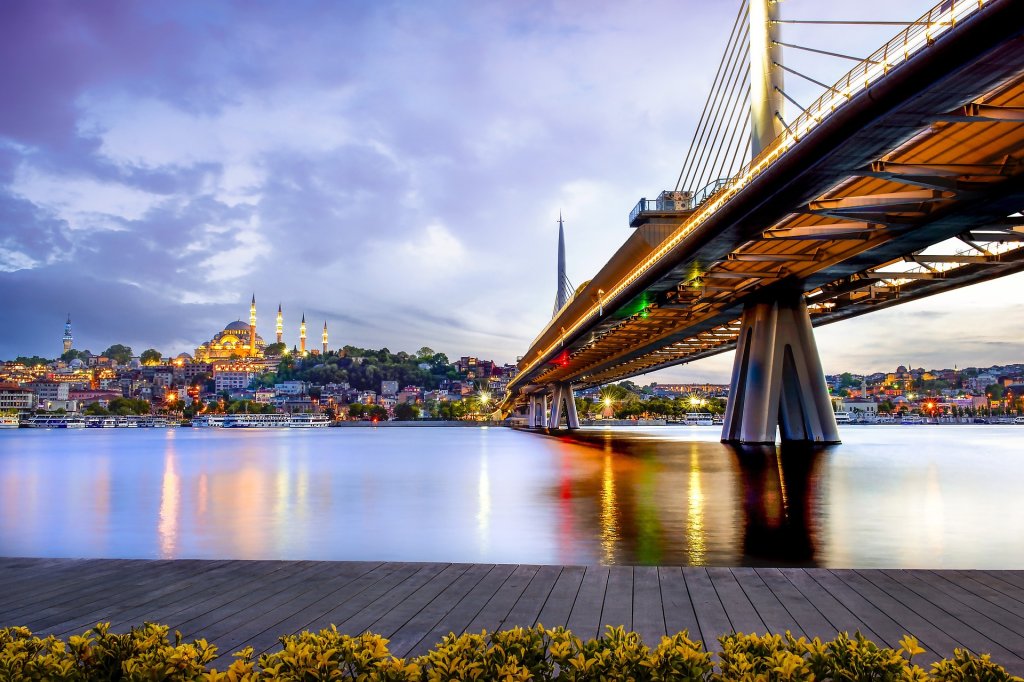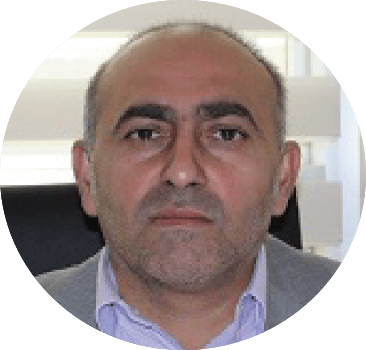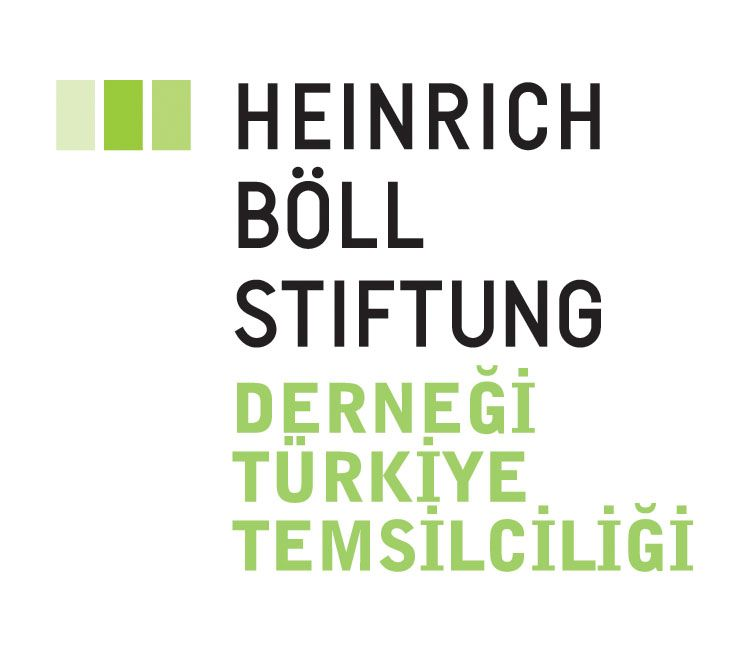
The naming preferences of either the Turkish “Cyprus Peace Operation” in 1974 or the American “Operation Enduring Freedom” during 2001-2014 remind me of Özdemir Asaf’s famous lines, “All colors were getting dirty fast / They have championed the white” [“Bütün renkler hızla kirleniyordu/Birinciliği beyaza verdiler”]. Thus, as in George Orwell’s masterpiece 1984, “War is peace, freedom is slavery, and ignorance is power,” the concepts of peace or freedom have become buzzwords, manipulated as they cannot escape their fate.
Similarly, during our formal education from the beginning of primary school to the end of high school, we learned by heart that Turkey, as a peninsula, is surrounded by seas (the Black Sea, the Aegean, and the Mediterranean) on three sides by but also by external enemies on all four sides, not even counting the domestic ones. So, it is not surprising that realism is a hugely popular approach not only in the broader country that rose from the ashes of the Ottoman Empire, devastated by the Treaty of Sèvres after World War I but also among International Relations students in Turkey. In understanding the self-help model, which means no friends at all, Turkey has geographically applied the second half of the wise saying, “Keep your friends close and enemies closer”.
Despite being contained by enemies from all sides, Turkey’s unique geostrategic location, also as a matter of self-pride, had provided the country a golden opportunity to serve as a bridge between the West and the East, or at least between the continents of Asia and Europe, embodied in the Bosphorus Bridge whose name was converted into the 15th of July Martyrs Bridge like many other public estates after the 2016 coup d’état attempt.
Of course, being a bridge, even metaphorically, was also a curse denoting belonging nowhere, like Edward W. Said’s autobiography book titled Out of Place: A Memoir. This view forced Turkey to be always on alert to preserve its relatively peaceful domestic medium and to realize peace regionally and globally, crystallized in Atatürk’s motto, “Peace at home, peace in the world”. Yet, one should keep in mind that despite his motto, Atatürk also paid no attention to status quo politics in the case of Hatay and showed how war could be an option if necessary.
Foreign policy is mainly equated with peace in the world, especially in Turkey, although war is always one of the options on the table, either flagrantly or latently. Thus, foreign policy sounds loftier than its content since it is a policy among many others but has a greater role even in dominating domestic politics in general through shaping, e.g., defense or economic policies. This structural privilege provides foreign policy having a grander shadow than its size deepened via globalization since the decision-making and implementation processes have been hit in the rising number of actors besides the nation-states, their ministries of foreign affairs, and even the international organizations.
A devil’s advocate here may question if we must develop a peaceful foreign policy in general and specifically for Turkey. S/he may refer to how Ministries of War of the previous century only changed their names but not their functions. At the same time, the military-industrial complex is an essential trait of nation-states paying attention to arms sales as the number one issue, or war drums have never ceased even in the heydays of peace. S/he may lengthen the list as we had several low-profile violent conflicts and minor wars compared to two world wars during the Cold War years.
However, from a liberal perspective, all wars are civil wars at the last instance because humans execute them against humans, so we must try our best to end blood feuds among our brethren. That is why the essence of foreign policy is to realize peace nationally, regionally, and globally by employing diplomacy even under war conditions. Dialectically, wars teach us the value of peace, which is worthy because of its fragile nature, like a Chinese vase. There are always elephants before the China shop making us keep our eyes open for them. Although Clausewitz depicted war as a duel on a larger scale, I prefer to define it as one of the age-old maladies of humanity, like racism, in need of rehabilitation through total eradication. Following Clausewitz’s definition of “war…not merely a political act but a real political instrument, a continuation of political intercourse, carrying out of the same by other means,” one may replace peace with war to reach the same ends. Briefly, peace is the ontological environment we can cultivate humane traits starting with freedom rather than being challenged by the war conditions harming such qualities and turning us into savages.
How could Turkey develop a peaceful foreign policy? Especially since peace is ontologically fragile and foreign policy is getting more complex than ever, as explained above. My answer is to turn Turkey into a trading state and Turkish people into a business nation. Turkey, since the 1980s, has not been able to repeat the miraculous example of South Korea, barely producing almost one percent of the global GDP, in parallel weight to its population share in world demographics. Thus, the more Turkey develops an economic perspective in decision-making and implementation processes; the more rationality would form the basis for policy formulation in every sector.
We may measure anything based on numbers; anything measurable is controllable and open to checks if we made a mistake earlier. Historically, any state must provide welfare, after security, to its citizens to keep its legitimacy among them and its survival. Thus, equating the state with a charity organization to distribute the welfare from taxes to the whole society in a just way makes sense. However, the state is more than that; any state is not only a profit-maximizer. This is a paradox as it must perform all its functions in a capitalist medium, at least since Wallerstein’s “the long 15th century”. In such a context, any state should look forward to increasing its profits as in microeconomics rather than equating the macroeconomic formula to zero. A trading state as a profit maximizer would pay attention to its long-term benefits more rather than short-term gains, so it would try its best to disseminate such benefits first to its neighbors and then to the whole world rather than consuming its total energy on regional and global problems beyond its limited power and abilities.
Turkey is a middle-sized regional power but consumes most of its energy extravagantly to find solutions to either regional or global problems. For example, Turkey’s open-door policy for people fleeing from the civil war in Syria has cost a lot not only in economic terms but also socially and politically. The then Turkish Minister of Foreign Affairs Ahmet Davutoğlu admitted that -as a government- their red line was to accept 200K refugees at most. Still, Turkey today hosts about 4M Syrian refugees, not even counting the Afghans and others, which has dramatically burdened the Turkish economy and transformed its demographics while harming social harmony with the rise of xenophobia in Turkey.
The more Turkey improves its economy, so it will be able to enlarge the cake and minimize its problems. Turkey has already proven that it could succeed in the first ten years of the Justice and Development Party governments by applying the trading state model while attracting further foreign investment and opening its doors to the world through its possible membership to the European Union after its candidacy was accepted in 2004. This is a tested and affirmed way in that Turkey would have more profound effects on global politics rather than focusing on its heavy rhetoric that results in nothing, as in the case of “the world is larger than five” (the permanent members of the United Nations Security Council) rhetoric.
Turkey could also develop a peaceful foreign policy paying further attention to diplomacy. It is the fifth country in the number of embassies worldwide. It is time to deepen these networks in the number of locations and their staff and transform them into liaison offices for more business in line with my first proposal. Although Turkish shuttle diplomacy efforts as an honest broker between Israel and Palestine earlier have not borne fruit, and even Turkish and Israeli ambassadors were withdrawn for a long time due to several conflicts, Turkish-Israeli relations are improving today after the reciprocal assignments of ambassadors. Similarly, Turkey’s strained relations with Saudi Arabia and the United Arab Emirates are being eased thanks to cozy efforts on both sides.
Last but not least, Turkish President Recep Tayyip Erdoğan’s relations with both Russian and Ukrainian counterparts have opened the path for the grain corridor agreement despite the ongoing war between these countries and even signaled Turkey would have a role in a possible peace or at least a ceasefire. Thus, much as Turkey pays attention to developing its diplomatic potential, it would improve its soft power potential. The rationality mentioned above would drive Turkey towards becoming a smart power after that. Moreover, it would benefit Turkey to strengthen its relations with the West without damaging its relations with China and to develop its ties with India, another potential actor in the global economy.
Following the end of the Cold War, Turkey rose as an oasis of peace amid a desert of several ethnic conflicts and bloody wars in the Caucasus, Balkans, and the Middle East. While preparing this piece, Turkey was on the eve of the 99th anniversary of the Turkish Republic’s establishment, and President Erdoğan declared the Republic’s next century as “the Turkish Century.” Just after the Cold War, we heard such a phrase-mongering from President Turgut Özal, indicating that “the 21st century would be the Turkish century,” and later President Süleyman Demirel declared the emergence of the “Turkish world from the Adriatic Sea to the Great Wall of China.” However, though almost a quarter of this century is over, there seems even no clue yet to indicate any development paralleling such glaring discourses. As a result, for Turkey to achieve a peaceful foreign policy, it should become a trading state with more diplomacy.

Prof. Dr. Murat Çemrek is a faculty member at Necmettin Erbakan University, Department of International Relations. He completed his BA in Political Science and Public Administration at METU, and his MA and PhD in Bilkent University, in Political Science and Public Administration, and his post-doctoral research at Budapest College: Institute of Higher Specialization. Globalization, Turkish Foreign Policy and the Middle East are his fields of study.
To cite this work: Murat Çemrek, “Developing Peaceful Foreign Policy for Turkey: The Tale of Two Strategies” Panorama, Online, 16 December 2022, https://www.uikpanorama.com/blog/2022/12/16/mc/

This article has been prepared with the support provided to the International Relations Council and the Global Academy by the Heinrich Böll Stiftung Association Turkey Representative within the scope of the project titled ‘Foreign Policy for the 21st Century; Peaceful, Equitable, and Dynamic Turkey’.
Copyright@UIKPanorama. All on-line and print rights reserved. Opinions expressed in works published by the Panorama belongs to the authors alone unless otherwise stated, and do not imply endorsement by the IRCT, Global Academy, or the Editors/Editorial Board of Panorama.

